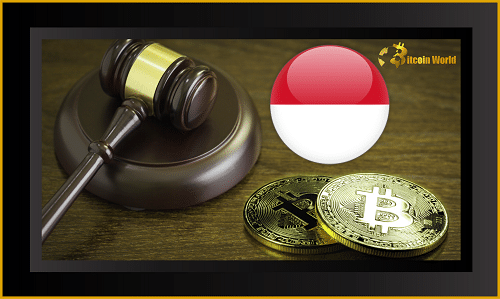Heads up, crypto enthusiasts in Indonesia! Big changes are brewing in the world of digital currency exchanges. Imagine a landscape where your crypto dealings are even more secure and transparent. Well, that future is getting closer in Indonesia, with new regulations on the horizon. Let’s dive into what these changes mean for you.
Why the Regulatory Shift? The Zipmex Effect and Beyond
You might be wondering what’s driving these new rules. Think back to the recent situation with Zipmex, the Southeast Asian crypto exchange that faced financial headwinds and had to pause withdrawals. This event, among others, has highlighted the need for stronger safeguards in the crypto space. Indonesia’s regulators are stepping up to ensure a more stable and secure environment for crypto traders.
What’s on the Horizon? Key Aspects of the New Regulations
So, what exactly can you expect from these upcoming regulations? Here’s a breakdown of the key changes:
- Local Leadership Mandate: Get ready for more Indonesian faces in charge! A significant portion – two-thirds, to be exact – of cryptocurrency exchange directors will need to be Indonesian citizens residing in the country. This aims to bring local expertise and accountability to the forefront.
- Third-Party Custody for Your Crypto: Think of it as an extra layer of security for your digital assets. Exchanges will be required to partner with independent third parties to hold customer funds. This means your crypto won’t be directly managed or reinvested by the exchanges themselves, reducing potential risks.
- No More Reinvestment of Customer Crypto: This is a big one for security! Exchanges will be prohibited from reinvesting the cryptocurrency entrusted to them by users. This measure aims to prevent risky investment strategies with customer funds, further safeguarding your assets.
When Will These Changes Take Effect?
While an exact date hasn’t been set in stone, Bappebti has indicated that these new guidelines will be announced soon. So, stay tuned for official updates!
The Indonesian Crypto Exchange: Still on Track?
Despite the regulatory tightening, Indonesia remains committed to fostering a thriving crypto ecosystem. The government still plans to launch its own cryptocurrency asset exchange later this year. While the launch has faced delays, the intention is clear: to provide a regulated platform for crypto trading within the country.
Indonesia’s Stance on Crypto: Commodities, Not Currency
It’s important to remember Indonesia’s current position on cryptocurrencies. While trading them as commodities is permitted, they are not recognized as legal tender for payments. This distinction shapes the regulatory landscape and focuses on crypto as an investment asset.
Taxing Crypto: A Look at the Numbers
The Indonesian government has already implemented tax regulations for cryptocurrency transactions. Currently, both income tax (PPh) and value-added tax (VAT) are set at 0.1% on crypto purchases. This move signifies the government’s recognition of the growing crypto market and its potential for revenue generation.
The Explosive Growth of Crypto in Indonesia: By the Numbers
The numbers speak volumes about the popularity of cryptocurrency in Indonesia:
- Massive Transaction Growth: A staggering 1,224% surge in cryptocurrency transactions was recorded between 2020 and 2021, jumping from 64.9 trillion rupiahs to a whopping 859.4 trillion rupiahs (approximately $57.5 billion).
- Millions of Users: In the first half of this year alone, 15.1 million Indonesians engaged in cryptocurrency transactions, with a total value of 212 trillion rupiahs.
These figures underscore the significant adoption of cryptocurrency in Indonesia and highlight the importance of robust regulations to protect investors.
What Does This Mean for Crypto Traders in Indonesia?
These regulatory changes, while potentially requiring adjustments for exchanges, ultimately aim to create a more secure and trustworthy environment for crypto traders in Indonesia. Here are some key takeaways:
- Increased Security: The requirement for third-party custody significantly reduces the risk of exchange mismanagement or loss of funds.
- Greater Transparency: Having locally-based directors can enhance accountability and understanding of the Indonesian market.
- Potential for a More Stable Market: By addressing potential vulnerabilities, these regulations can contribute to a more stable and sustainable crypto market in the long run.
Challenges and Considerations
Of course, with any new regulation, there will be challenges. Crypto exchanges will need to adapt to these new requirements, which may involve restructuring their operations and forging new partnerships. However, these adjustments are a necessary step towards building a more mature and reliable crypto ecosystem.
Looking Ahead: A Maturing Crypto Market in Indonesia
Indonesia’s move to tighten cryptocurrency exchange regulations reflects a global trend towards greater oversight of the digital asset space. While the details are still being finalized, the direction is clear: a commitment to protecting investors and fostering a sustainable crypto market. For crypto traders in Indonesia, staying informed about these developments is crucial to navigating the evolving landscape.
In Conclusion: Navigating the New Crypto Rules of Indonesia
The upcoming regulations in Indonesia signal a significant step towards a more regulated and secure cryptocurrency environment. While changes are on the horizon for exchanges, the ultimate goal is to protect users and foster trust in the digital asset market. Keep an eye out for the official announcements from Bappebti, and get ready for a potentially more stable and secure future for crypto trading in Indonesia.
Disclaimer: The information provided is not trading advice, Bitcoinworld.co.in holds no liability for any investments made based on the information provided on this page. We strongly recommend independent research and/or consultation with a qualified professional before making any investment decisions.




